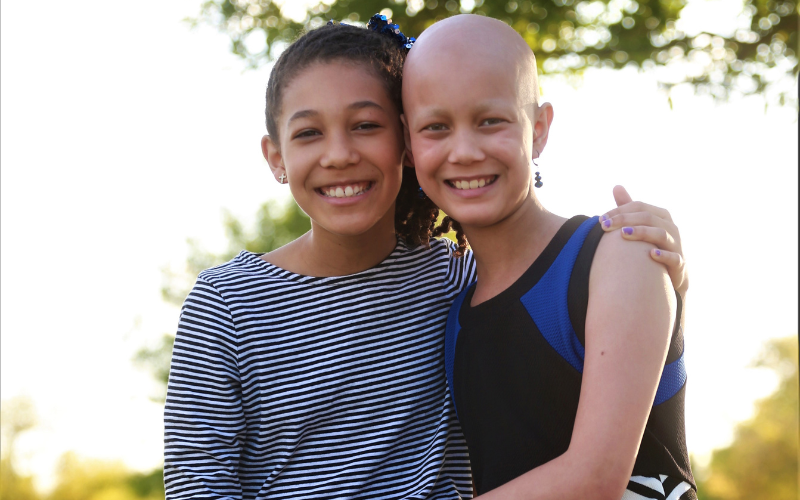
By: Erin Weller
 Psychologist-in-training Katie Davis was amazed by the resilience of families during a childhood cancer diagnosis, but she also knew just how often mental health issues like post-traumatic stress disorder (PTSD) were lurking beneath the surface.
Psychologist-in-training Katie Davis was amazed by the resilience of families during a childhood cancer diagnosis, but she also knew just how often mental health issues like post-traumatic stress disorder (PTSD) were lurking beneath the surface.
PTSD is a condition in which persistent mental and emotional stress occurs as a result of witnessing or experiencing a distressing event. About one to two-thirds of siblings of children with cancer experience moderate to severe symptoms of cancer-related PTSD.
Katie knew she wanted to look at the effects of childhood cancer from a new perspective by examining the entire family system after a diagnosis.
“As a field, we sometimes forget the important role that siblings play as support and informal caregivers during the cancer experience and how meeting the needs of siblings can help us to better meet the overall needs of families,” she explained.
After examining the statistics regarding post-traumatic stress symptoms in parents and siblings of kids with cancer, Katie seized the opportunity to put her research capabilities to good use. With the help of an Alex’s Lemonade Stand Foundation (ALSF)'s Pediatric Oncology Student Training (POST) grant, Katie joined forces with mentor, Dr. Kristin Long, at Boston University to assist in developing a program for childhood cancer siblings that specifically targets symptoms of PTSD by practicing interpersonal methods of open communication in family models.
What Katie found while conducting these family conversations was fascinating. While both parents and siblings seemed willing to enroll in a trauma-focused sibling support program, their participation and approaches to the study varied depending on pre-existing stress levels.
Parents with low levels of post-traumatic stress were often less anxious about having such candid conversations with their kids in this program – mainly because they were already having open conversations at home. But parents with high levels of post-traumatic stress were more likely to experience feelings of anxiety about having these conversations during the program – often because they were less communicative at home and therefore, more uncertain of their child’s emotional state.
Now, Katie is left with the complicated task of finding the families that need their help most. In the coming months, Katie is helping to develop a treatment manual and other materials in preparation for a pilot program. Moving forward, she hopes they can tailor this program to address each family’s specific needs as well.
Additionally, since siblings are rarely present in hospitals, it can be particularly difficult to provide services that are able to reach them. Katie believes telehealth is one potential solution.
“An ongoing challenge for us will be figuring out how to use telehealth to provide families with the skills needed to effectively process the big emotions that often come up when we talk about cancer,” said Katie.
As a graduate student, the POST grant offered Katie the unique opportunity to start making an impact.
“The POST grant enabled me to devote my summer to developing the content, knowledge and skills needed to achieve my long-term goal of becoming an independent childhood cancer researcher,” she says. She believes this research has the potential of benefiting countless organizations like ALSF with childhood cancer sibling programs – including SuperSibs.
Thanks to the invaluable training and experience she gained under the mentorship of Dr. Long, Katie sees her career from a new perspective.
“This experience in particular has really strengthened my commitment to focusing my career on elevating families’ voices,” said Katie.
ALSF supports all phases and stages of childhood oncology research, Attracting and retaining the best and brightest early career scientists is critical to the future of childhood cancer research. Funding at this stage will encourage and steer promising researchers toward long-term careers in pediatric oncology investigation.
Learn more about the ALSF grant program.

